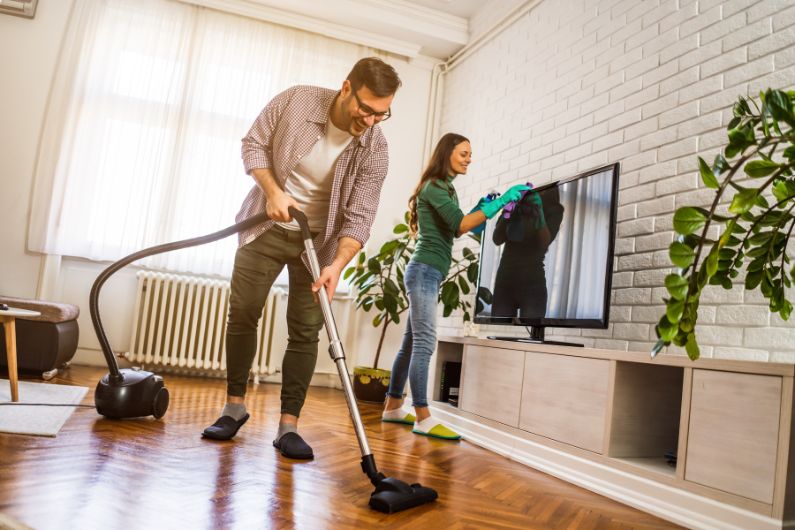Picture this: You’re sitting in your home office trying to finish your work for the day. However, all sorts of junk are littering your desk. Amidst your fun knickknacks are stacks of paper and wrappers from some of your favorite snacks. You do your best to ignore everything, but your eyes keep wandering back to it all.
Too much stuff in your home or work environment makes focusing difficult. In addition to negatively impacting your focus, clutter makes cleaning difficult. Irritants like dust can aggravate allergies. Learn how managing clutter can benefit your mental and physical health.
Less Clutter Means More Focus
You naturally focus better in a clean and neat space. Of course, we know that minimalism isn’t in the cards for everybody. If you’re creative, you can always look at it as shifting the space into organized chaos rather than leaving it as a mess where you can’t find anything.
Less clutter improves your focus. Visually, there are fewer distractions to fixate on when trying to get tasks done. When everything has a proper home, you can locate the items you need better. Actual junk belongs in the garbage.
Create Safe Places That You Love
Decluttering areas in your home lets, you make the most of the space. Additionally, you’ll know that the house is safe. This is important if you have little ones. You wouldn’t want your toddler to reach under your bed only to find some dusty Christmas decorations you never put away that could wind up in their mouth.
Getting rid of excess stuff or storing it properly makes you feel proud of your home when company comes over. If you suffer from allergies or asthma, you’ll likely feel better without so much dust in your home. Everyone benefits from a clean space.
Decluttering Hacks
Collecting extra stuff doesn’t happen overnight, so give yourself some grace when you work on cleaning and organizing.
Here are some hacks to help you declutter your space:
- Take it one room at a time.
- Break the room into sections. (If you’re decluttering a bedroom, start by organizing your belongings on the nightstand. Then, move on to other areas.)
- Donate items you no longer need but could help someone else.
- Think of how often you use an item when you struggle to part with it.
- Take pictures of belongings you no longer need but want to remember.
You may feel tempted to put extra stuff where it’s out of sight, so ensure you know tips for clearing out your cluttered attic. It’s important to keep all areas of your home functional.
We hope you liked learning how managing clutter can benefit your mental and physical health. While decluttering feels daunting, take the time to do it little by little. Figure out ways to make the most of your living space.



Connect With Me !